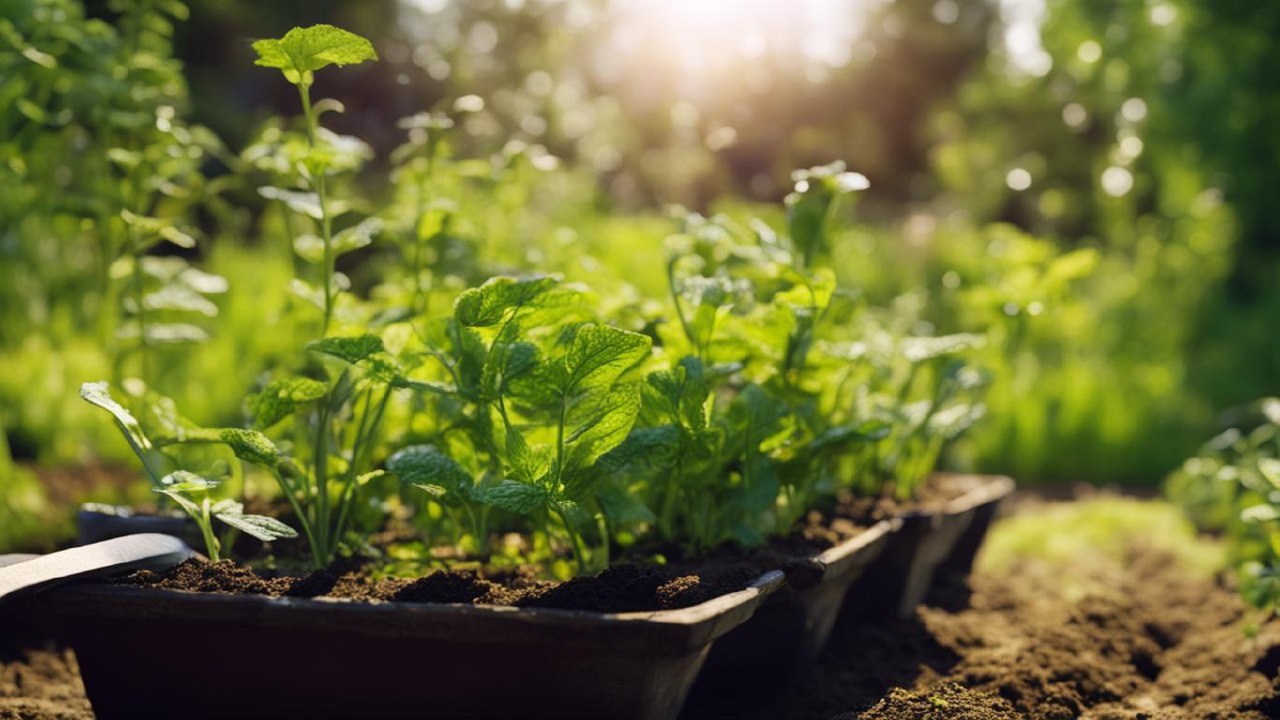Natural gardening is more than just a system of growing plants; it’s a philosophy that regards and works receptive nature. By avoiding artificial chemicals and pesticides, organic gardeners seek to create healthy, throbbing ecosystems that nourish plants, soil, and being. Whether you’re a novice grower or a seasoned skill at gardening, organic gardening offers a pleasing and sustainable approach to cultivating your own crops, vegetables, herbs, and flowers. Let’s investigate the principles and practices of organic horticulture and discover how you can conceive a thriving flowers while protecting the environment and advancing biodiversity.
The Principles of Organic Horticulture:
At the heart of organic horticulture are several key principles that guide practices and accountable:
- Soil Health: Healthy soil is the base of organic horticulture. Organic gardeners focus on construction and maintaining soil fertility through unrefined means such as produce, cover cropping, and crop rotation. By maintenance a diverse ecosystem of advantageous microorganisms, earthworms, and other soil creatures, organic gardeners create soil that is to say rich in nutrients, well-structured, and abundant with life.
- Biodiversity: Basic gardeners recognize the importance of biodiversity in forging resilient and sustainable environments. By planting a various range of crops, flowers, and native plants, organic gardens bring beneficial insects, fowls, and other wildlife that help control viruses and pollinate plants. Embracing difference in the garden promotes environmental balance and reduces the risk of pest outbreaks and affliction.
- Natural Pest and Affliction Management: Rather than depending synthetic pesticides and herbicides, organic gardeners engage a variety of natural patterns to manage pests and afflictions. These methods contain crop rotation, companion setting, biological control (introducing organic predators or parasites), and material barriers such as row covers or mesh. By fostering healthy plants and soil, basic gardeners create environments that are less favorable to pests and afflictions.
- Composting and Recycling: Basic gardening emphasizes the use of natural resources such as compost, manure, and green manures to nourish plants and improve soil building. Composting room for cooking food scraps, yard waste, and different organic materials not only reduces waste but again produces nutrient-rich compost that embellishes soil fertility and promotes plant development. By closing the loop on waste and recycling fibers back into the soil, organic gardeners build sustainable and self-renewing environments.
Practices of Organic Gardening:
Apart from these principles, organic horticulture encompasses a variety of practices and methods:
- Composting: Turning room for cooking food scraps, playground waste, and other organic matters into compost is a cornerstone of basic gardening. Compost increases valuable nutrients to the soil, improves soil construction, and enhances microbial activity.
- Make ready to bear: Applying manure to garden beds helps conserve liquid, suppress weeds, and regulate soil hotness. Organic mulches such as slivered leaves, straw, or grass clippings again break down over time, accumulating organic matter to the soil.
- Helper Planting: Planting sure crops together can help repel pests, draw beneficial insects, and raise overall garden health. E.g., planting marigolds near tomatoes can check nematodes, while planting herbs in the way that basil and dill can attract pollinators and repel viruses.
- Water Conservation: Organic gardeners plan out water conservation by using methods such as drip watering, rainwater harvesting, and correct mulching to underrate water waste and promote efficient water use.
- Basic Pest and Disease Control: When bug or disease problems stand, organic gardeners turn to organic solutions such as insecticidal soaps, neem lubricate, and beneficial bugs to manage outbreaks while minimizing harm to the atmosphere and beneficial organisms.
By accepting these principles and practices, organic gardeners can design beautiful, productive, and tenable gardens that nourish the physique, mind, and soul. Either you’re growing vegetables, flowers, or herbs, natural gardening offers a holistic approach that honors the interrelatedness of all living things and fosters a deeper network to the natural world. So, roll up your sleeves, begin with enthusiasm the dirt, and embark on your natural gardening journey contemporary!
